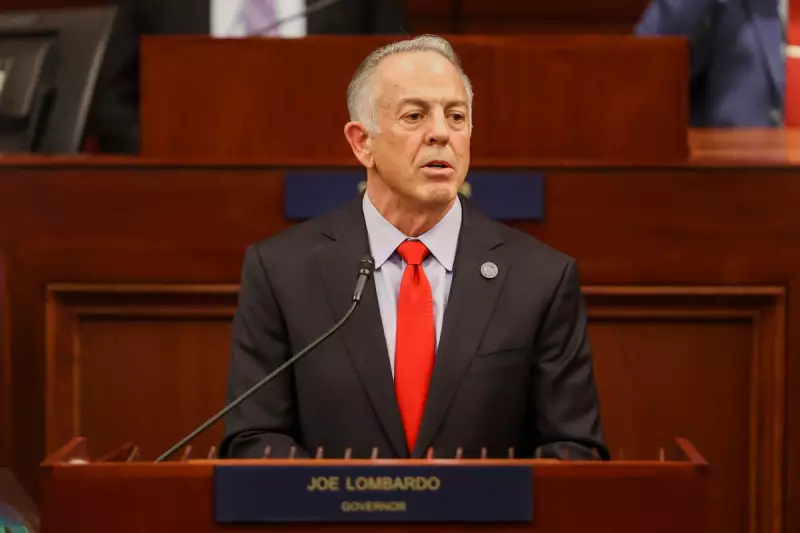
A bold plan to transform Las Vegas into a major film production hub has been abruptly halted after Nevada lawmakers rejected a multi-million dollar tax incentive package by a single vote. The dramatic conclusion to a week-long special session in Carson City saw the controversial proposal fail, dealing a significant blow to its supporters, including Governor Joe Lombardo and powerful trade unions.
Hollywood's Nevada Dream Fails at the Final Hurdle
The proposed legislation would have offered $95 million in annual transferable tax credits to Sony Pictures Entertainment and Warner Bros. Discovery to establish a new film production facility in the Las Vegas suburbs. Dubbed the Summerlin Studios Project, the ambitious development promised to create 10 movie stages, hotels, and a medical centre.
Supporters, led by construction unions, framed the initiative as a crucial "jobs bill" that would generate 19,000 construction positions and 18,000 permanent roles. Alfonso Lopez, an organiser with Sheet Metal Workers Local 88, emphasised the urgent need for work, noting that some Southern Nevada workers hadn't seen major employment opportunities since projects like the Fontainebleau and Sphere were completed two years ago.
However, the proposal faced fierce opposition from both sides of the political aisle. Critics questioned the financial wisdom of offering substantial tax breaks when legislative fiscal staff predict a state deficit of up to $260 million by 2030. Assemblymember Selena La Rue Hatch, a Democratic lawmaker who tried to block the bill, warned that such a deficit would force the state to "either raise taxes or cut the already limited services that we are providing."
Despite last-minute efforts to sweeten the deal by dedicating funds to medical expenses for retired state employees and expanding pre-K programs in Vegas-area schools, the bill ultimately failed in the Senate by one vote, with three Republican members absent.
Governor's Crime Package Secures Passage
While the film tax credit proposal collapsed, Governor Lombardo saw his flagship "Safe Streets and Neighborhoods Act" successfully navigate the legislative process. The comprehensive crime package introduces stricter penalties for various offences, including smash-and-grab robberies, assaults against hospitality workers, and DUIs involving fatalities.
A key provision revives the Resort Corridor Court program, which had ended in 2024. This specialised court handled minor crimes originating on the Las Vegas Strip and could issue orders banning repeat offenders from the area for one year. Karlos LaSane, a regional vice president for Caesars Entertainment, argued that such measures are essential to protect both workers and Las Vegas's reputation among tourists, particularly during a period of declining tourism.
However, the Democratic-majority Senate added amendments that could prove contentious, including requirements for detention facilities to maintain running lists of people they hold and restrictions on law enforcement officers entering school grounds without warrants. Despite Governor Lombardo having vetoed similar provisions in June, his press office indicated he would support the amended version, stating it "abides by the constitution and still allows for law enforcement to keep schools safe."
Political Implications and Economic Consequences
The special session held significant political weight for Governor Lombardo, a former Clark County sheriff considered one of the most vulnerable Republican governors facing reelection in 2026. In a statement, Lombardo emphasised that "Nevadans deserved action now — not years from now — on the issues that most impact their daily lives."
The failure of the film tax credit represents a substantial setback for both the governor and union lobbyists who had invested over a million dollars in promoting the legislation. Alexander Marks of the Nevada State Education Association captured the sentiment of opponents, remarking, "If Hollywood is the emergency, then Nevada leaders have lost the plot, and if tone deafness were taxable, perhaps our schools would be fully funded."
As Nevada concludes its seven-day legislative session, the state faces competing priorities: stimulating economic growth through major development projects versus maintaining fiscal responsibility amid predicted budget shortfalls. The narrow rejection of the film initiative and the passage of the crime package set the stage for continued debate about Nevada's economic future and public safety approach as the 2026 election approaches.





